Dear PGM Capital Blog reader,
In this weekend blog article, we want to elaborate on how geopolitics can affect your investments.
INTRODUCTION:
Political risk is a type of risk faced by investors, corporations, and governments that political decisions, events, or conditions will significantly impact investment returns; whether it’s trade wars, actual wars, populist politicians or terrorist attacks.
Geopolitical risk can refer to a wide range of issues, from military conflict to climate change and Brexit. We look at it as the relationships between nations at a political, economic or military level. The risk occurs when there is a threat to the normal relationships between countries or regions.

Geopolitical risks are on the rise and will play a major role in the years to come, however it can be understood and managed with reasoned foresight and investment.
GEOPOLITICAL RISK AND THE MARKETS:
Geopolitical risks tend to trigger investors to move away from riskier assets like shares and towards perceived “safe” assets.
This negatively impacts currencies exchange rates, stock market returns, while government bonds benefit (particularly those with short maturities as they are perceived as the safest).
Investors also shift their money away from small caps stocks and riskier regions such as emerging markets, toward respectively big caps stocks and developed markets.
THE GEOPOLITICAL RISK INDEX:
Dario Caldara and Matteo Iacoviello construct a monthly index of Geopolitical Risk (GPR Index) counting the occurrence of words related to geopolitical tensions in leading USA and international newspapers, since 1985.
Geopolitical risk is defined whenever that index shoots above the 100 mark, as can be seen here below.
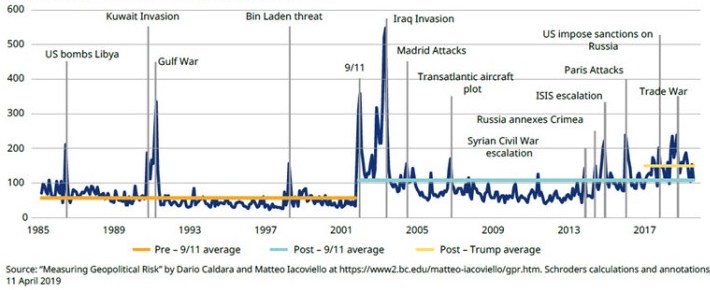
PGM CAPITAL’s ANALYSIS & COMMENTS:
Market attention to global geopolitical risk is ticking up, while on the other hand, attention to European fragmentation has declined from its May peak, as acute risks to integration – aside from Brexit – have subsided.
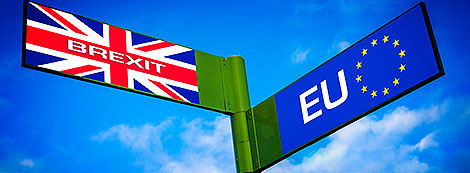
Market attention to global trade remains elevated, although the U.S.A. and China might be on the brick of reaching a limited deal on the trade deficit and tariffs.
Frictions between the U.S.A. and Europe look set to rise as the U.S.A. implements tariffs on EU goods in retaliation for European aircraft subsidies – and as Europe takes steps to tax U.S.A. tech companies.
The U.S.-Mexico-Canada Agreement remains under serious consideration by the U.S.A. Congress, but faces headwinds, particularly in the midst of a presidential impeachment inquiry.
We see U.S.A.-China competition as structural and long-lasting and is likely to heat up further, as restrictions on Chinese technology expand in scope and intensity.
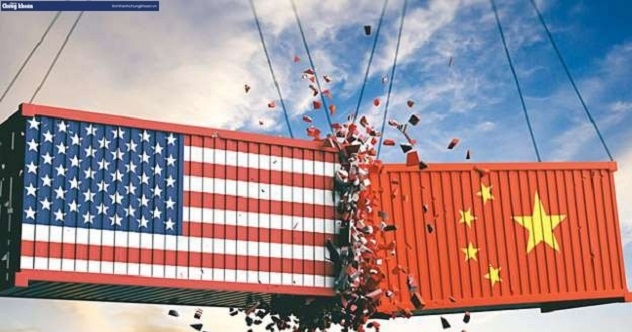
The impact of geopolitical shocks has historically tended to be more acute when the economic backdrop is weak, is one reason why we see geopolitical risk as a material market factor in 2019 and beyond, against a backdrop of slowing growth and elevated economic uncertainty.
We believe that shares of big caps consumers conglomerates and precious metals providing a potential buffer against risk asset selloffs triggered by geopolitical crises.
Be Greedy When Others are Fearful:
Brexit fears:
BP Plc, one of the seven oil supermajors and UK biggest company by market capitalization has a P/E ratio of 14 and a dividend yield of 6.3% at 1 year-low, due to the current BREXIT crisis, as can be seen from below chart.
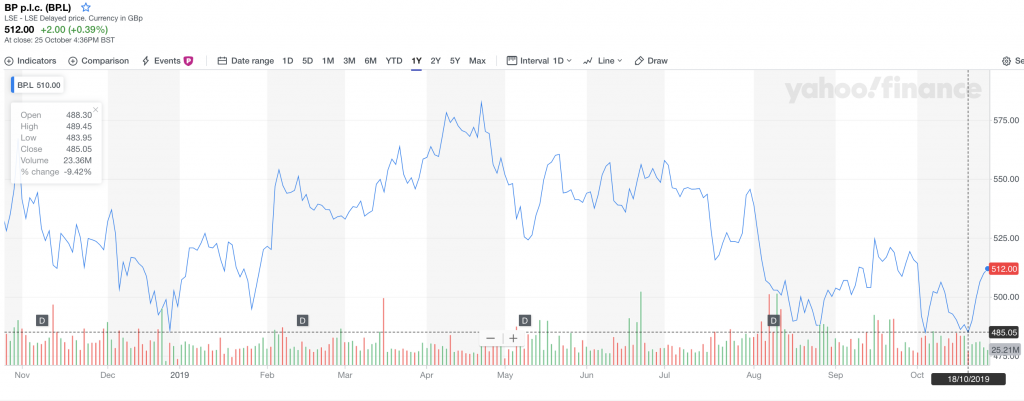
The British Pound at all-time low due to the current BREXIT crisis, as can be seen from below chart.
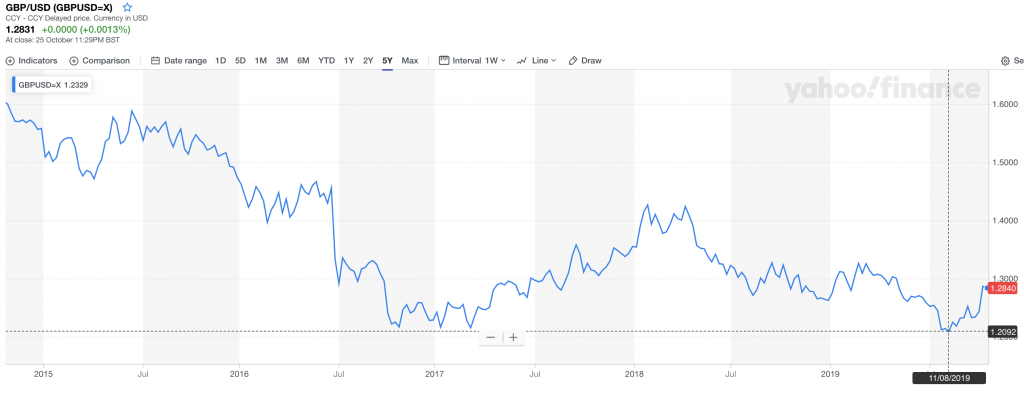
CHINA-USA Trade war jitters:
Industrial and Commercial Bank China, the world’s largest bank by total assets, deposits, loans, number of customers, and number of employees, has P/E ratio of 6 and a dividend of 5.12 percent. As well as world’s biggest refiner “SINOPEC” by volume with P/E ratio of 8.01 and a dividend yield of 9.42 percent, are at 2-year low, as can be seen from below charts.
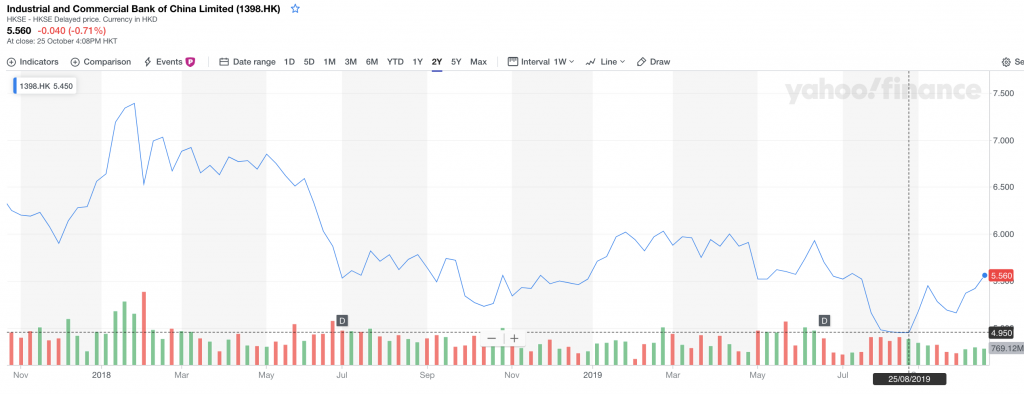
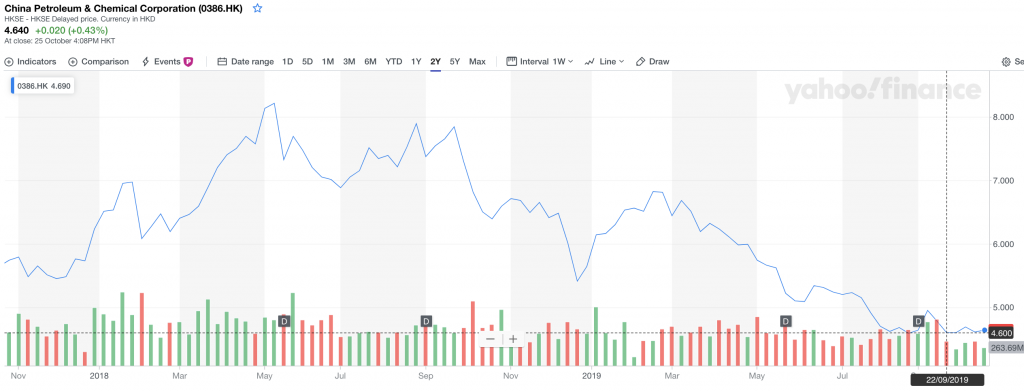
Turmoil in Hong Kong:
Amid worsening political tensions in Asia, most important financial center “Hong Kong”, the shares of Asia’s biggest conglomerate “CK Hutchison Holdings Limited“, with a P/E ratio of 7.14 and a dividend yield of 4.39 percent is hovering around 5-year low as can be seen from below chart.
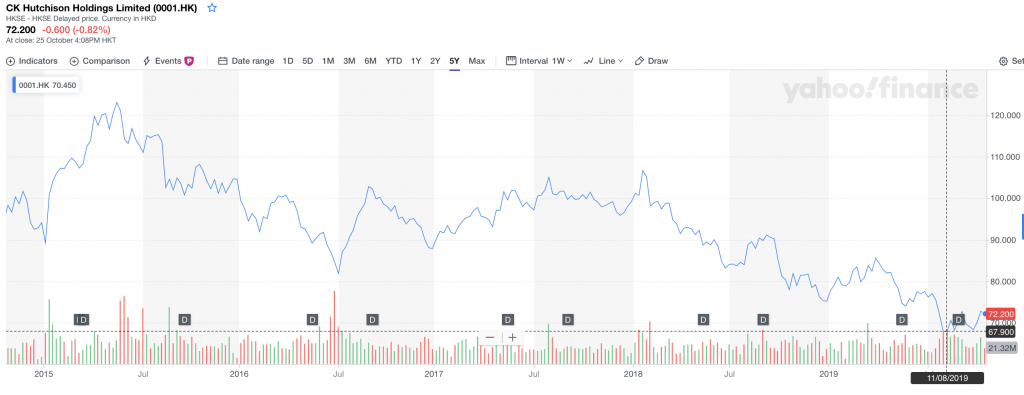
We believe that based on their fundamentals the share prices of the above mentioned securities, are at a widely exaggerated low. Based on this as a contrarian and value investor, we have upgrade them to a STRONG BUY at current price level.
Disclosure:
We own share of BP Plc, SINOPEC, and Industrial and Commercial Bank of China in our personal portfolio.
In this area of political geopolitical uncertainties, PGM Capital is at your service as your, Professional, Trustworthy and Dedicated, Financial Advisor and Asset Management.

Last but not least, before taking any investment decision, always take your investment horizon and risk tolerance into consideration. Keep in mind that share prices do not move in a straight line. Past Performance Is Not Indicative Of Future Results.
Yours sincerely,

Eric Panneflek
